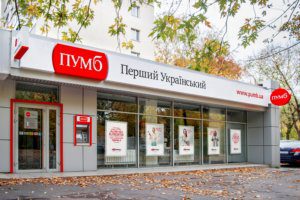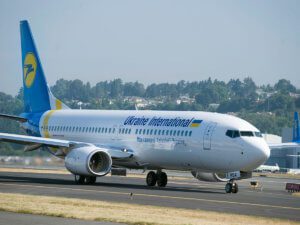
Kyiv-based First Ukrainian International Bank (FUIB) intends to double its profit in 2018, FUIB Board Chairman Serhiy Chernenko has said. “FUIB intends to double its profit this year,” he said at a press conference in Kyiv on Friday. FUIB’s net profit in 2017 amounted to UAH 785.8 million, which is more than twice as high as in 2016. FUIB was founded in 1991. As of early January 2018, its largest shareholder was Rinat Akhmetov (99.901045%).
According to the National Bank of Ukraine, as of January 1, 2018 FUIB ranked ninth (UAH 54.632 billion) in terms of total assets among the 84 banks operating in the country.

Lithuania expressed hope that the direct flight from Kyiv to the Lithuanian resort Palanga will be resumed, Lithuanian Ambassador to Ukraine Marius Janukonis has said. “In past years we were very pleased that Ukraine International Airlines launched a direct flight to Palanga. We are now making efforts to resume this flight,” he said at the presentation of the Lithuanian resort in Kyiv on Wednesday. In turn, Mayor of Palanga Sharunas Vaitkus said that the resort is annually visited by about 1 million tourists. At the same time, the city’s leadership is developing ways to extend the holiday season, including by building sanatorium facilities and developing curative programs.
Palanga is a resort town in Lithuania on the coast of the Baltic Sea. The length of the main beach of the resort is 25 km.

The French company Alstom has arrived in Ukraine and is looking for a platform for opening joint or new production facilities for investments, First Deputy Prime Minister of Ukraine Stepan Kubiv has said. “I’ve just met Alstom, the world’s third largest producer of power equipment and railway transport. The company came to Ukraine with investments and is looking for a platform for opening joint or new production facilities,” Kubiv wrote on his Facebook page. In his words, IT partners, engineering solutions, manufacturers of electrical and mechanical equipment, partners for joint production of electric locomotives and spare parts for them are also needed.
“I have assured that Ukraine is the right choice for investment. Work goes on!” First Deputy Prime Minister said, “tagging” (noting) Prime Minister Volodymyr Groysman, Deputy Prime Minister Volodymyr Kistion, Viktor Dovhan (Deputy Infrastructure Minister) and Yevhen Kravtsov (acting CEO of Ukrzaliznytsia). Alstom is one of the world leaders (along with Siemens and Bombardier) in the production of power equipment and railway transport. The company’s revenue in 2016-2017 fiscal years was EUR 7.3 billion. Alstom operates in more than 60 countries. Its staff exceeds 32,800 people.

Swedish Scania, one of the world’s leading manufacturers of heavy duty trucks, plans to increase its share in the segment of new heavy trucks (full weight over 16 tonnes) to 14% this year, while in 2017 it was 11.4%, Commercial director of Scania Ukraine Andriy Kurylo has told Interfax-Ukraine. According to him, in 2017 in the Scania Ukraine dealer network sold 323 trucks in Ukraine, while the market of these trucks was 2,834 units (all brands, including Western brands, as well as MAZ, KrAZ, KAMAZ and Chinese manufacturers), including 1,838 vehicles of the Western brands (the “Great Seven” plus Ford).
According to Kurylo, this year the market of new heavy trucks can grow by at least 50%, since already by the results of the first quarter the market showed this increase in comparison with the same period of the last year.
“Scania in Ukraine is among the leaders of the market, and our share in it has been stable for the past two years – about 20% among Western brands and about 11% among all manufacturers. But if in 2016 truck sales in Ukraine were low, then in 2017 thanks to deferred demand, the market has almost doubled,” Kurylo said.
He stressed that this year the company plans to continue working with “top customers.”
“This year we have quite aggressive plans. We intend to increase our share primarily by launching a new series of trucks in Ukraine, which has been operating in Europe for two years and has very positive feedback,” the commercial director said.
Scania introduced in Ukraine a new complete line of new generation trucks for all types of transportation, in the creation of which more than SEK 20 billion was invested, late March.
Commenting on the development of the company’s dealer network in Ukraine, Kurylo said that today, Scania has 11 centers, including three opened last year and one this year. He also said that the company offers customers not only new, but also used Scania trucks. The distribution company Scania Ukraine LLC has been operating on the Ukrainian market since 1998 (before that there was a representative office since 1993). SCANIA is part of the division of Volkswagen Truck & Bus GmbH and one of the world’s leading manufacturers of trucks and buses with weight of over 16 tonnes.